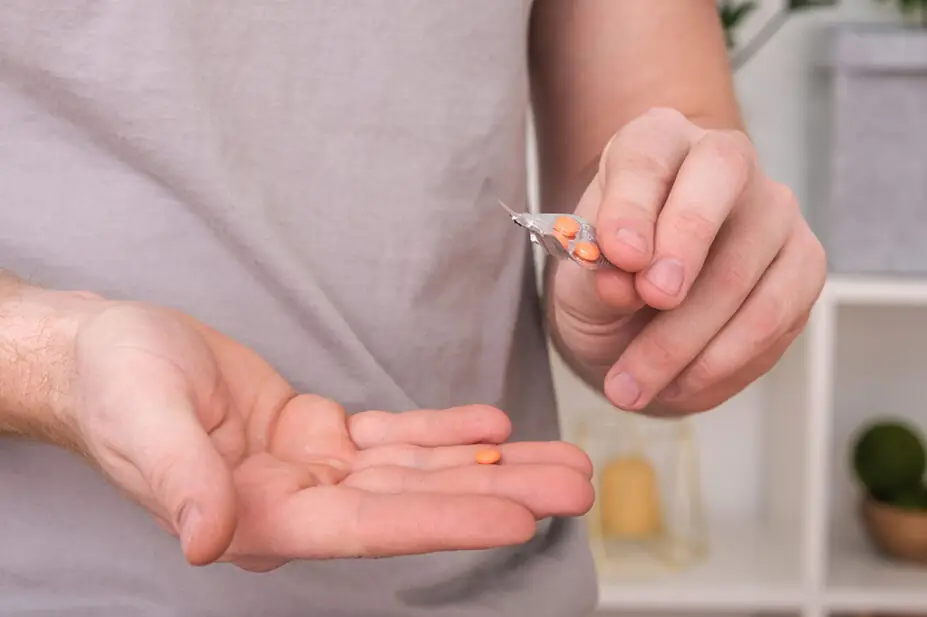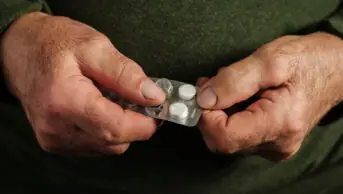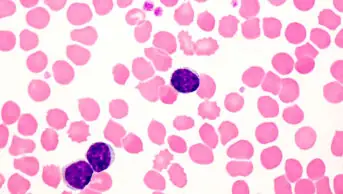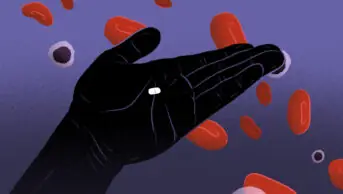
Shutterstock.com
The National Institute for Health and Care Excellence (NICE) has recommended the first oral androgen deprivation therapy (ADT) for the treatment of advanced hormone sensitive prostate cancer.
In an announcement published alongside final draft guidance on 19 July 2024, NICE said it estimates that up to 40,000 people in England could benefit from the treatment.
Relugolix (Orgovyx; Accord) works by suppressing testosterone levels, blocking its production in the testes. Unlike other hormone treatments given by injections, relugolix is a once-daily oral pill, allowing patients to take the medicine at home.
In the draft guidance, the independent committee said they were able to make the recommendation following clinical trial evidence, mainly from the ‘HERO’ trial, which showed that relugolix is more effective at reducing testosterone to levels that stop cancer growth in the longer term than leuprolide, an approved ADT in the UK.
The phase III randomised trial, published on 29 May 2020 in The New England Journal of Medicine, included data from 622 patients with advanced prostate cancer eligible for at least one year of continuous ADT.
The primary outcome was measured by the “sustained castration rate”, defined as the cumulative probability of testosterone suppression to <50 ng/dL.
Researchers concluded that relugolix “achieved rapid, sustained suppression of testosterone levels that was superior” than leuprolide, with a 54% lower risk of major adverse cardiovascular events (hazard ratio, 0.46; 95% CI).
An indirect treatment comparison has also suggested that relugolix works as well as other ADTs.
Commenting on the recommendation, Amy Rylance, assistant director of health improvement at Prostate Cancer UK, said: “This drug can not only help keep the cancer at bay but could be a game changer in terms of men’s experience of treatment. This is because it can be taken as a tablet at home, avoiding multiple trips to the clinic.
“Not only is this much more convenient and comfortable for a lot of men, but it is especially important for those who, for whatever reason, aren’t able to have injections,” she added.
Prostate cancer is the most common cancer in men in the UK, with around 51,000 new cases diagnosed in England in 2022. According to Cancer Research UK, there are around 12,000 prostate cancer deaths in the UK each year.
People with high-risk localised or locally advanced hormone-sensitive prostate cancer are normally offered ADT, surgery or radiotherapy.
Commenting on the recommendation, Clayton Wong, principal cancer services pharmacist at the Royal Free Hospital and co-secretary elect of the British Oncology Pharmacy Association, said the recommendation was “exciting news”.
“Relugolix is a non-peptide gonadotrophin-releasing hormone (GnRH) receptor antagonist, causing direct inhibition, unlike leuprorelin, a luteinising hormone-releasing hormone (LHRH) analogue, which achieve suppression by causing an initial over-stimulation.
“This means relugolix does not cause an initial tumour flare (an initial worsening of prostate cancer symptoms before improvement is seen), a common and expected side effect of LHRH analogues. It also means relugolix achieves testosterone suppression quicker,” he explained.
“Although just because relugolix is an oral tablet, it does not necessarily make it safer than an injection.
“Time will tell what the long-term benefits of oral relugolix to patients and the NHS is, or whether it has any yet to be discovered safety concerns, but it is good news to prostate cancer patients as they have another weapon in tackling their disease,” said Wong.
The final NICE guidance is expected to be published on 14 August 2024.


